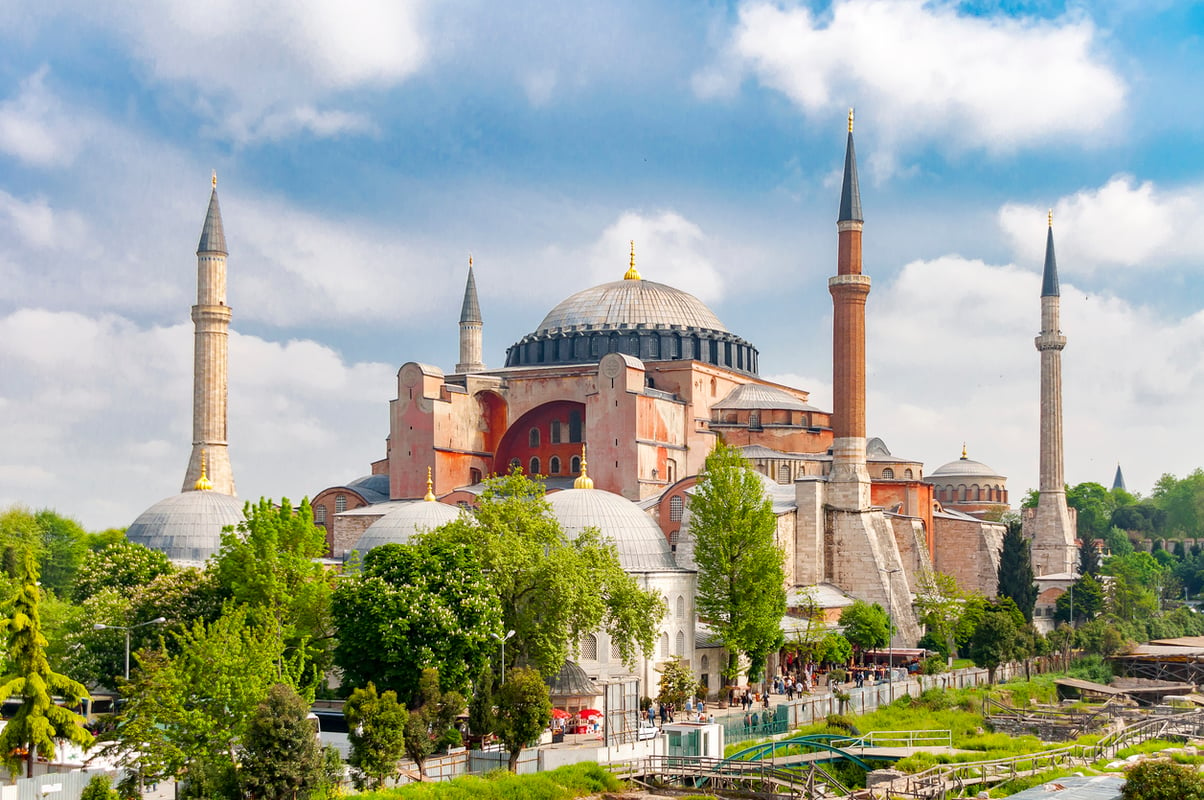What’s the Significance of Turkey’s Hagia Sophia Decision?
“The Hagia Sophia was a church, became a mosque, then a museum, and is now being turned back into a mosque. What’s the significance of this latest change?
The Hagia Sophia was originally built by Emperor Justinian I (527-565), also known as Justinian the Great. Justinian was emperor of the Eastern Roman Empire, also known as the Byzantine Empire, in Constantinople (modern-day Istanbul, Turkey).
After a failed attempt to conquer the Persians, Justinian set his eyes on reviving the glory of the Roman Empire, which had fallen in the west to the Germanic tribes. Through a series of brutal and fierce wars, he expanded the empire to include the territories around the Mediterranean, once again turning the Mediterranean into a Roman lake.
He tried to unite the empire under the “most holy Catholic and Apostolic Church of God.” He defended the Catholic Church by establishing new laws against paganism and heretics.” Continue Reading and see pictures of the interior of this building.
From: https://lifehopeandtruth.com/prophecy/blog/whats-the-significance-of-turkeys-hagia-sophia-decision/?
________
Covenants, Priests, Plants and Pigs. Does God's Law Ever Change
Does God’s Law Ever Change?
All laws are an extension of the lawgiver’s character. God’s character never changes, therefore his Law has always existed and can never change.
Yet, we have God telling Noah that he can eat animals and telling Moses to set up a national priesthood for Israel and restricting all sacrificial worship to a single location.
Clearly something changed. What gives?
House Rules
Your mother likes a clean house and she has rules to keep it that way: Take your muddy boots off before you come inside. Don’t eat on the sofa. If she lived in the city, her instructions might include leaving your raincoat and umbrella by the front door. If she lived near a river in the wilderness, she might say to clean your fish and game outside and away from the house and not to leave trash where it might attract bears.
These are your mother’s house rules, but, as you can see, the specific rules she chooses to spell out might be different, depending on circumstances. If she replaces her wood burning stove with a gas fireplace, some of the rules are going to change because the things that the rules governed have changed.
But Mom’s character hasn’t changed, only the circumstances into which her character is expressed have changed. The specific rules she spells out are instructions for aligning your actions with her character in a specific time and place–her torah–so they might shift somewhat over time. However, Mom’s character dictates that many of those rules are going to be constant across all circumstances. Don’t spit on the floor. Say please and thank you.
God’s Law Is an Expression of God’s Character
God’s Law and instructions are similar. The rules he gave Moses are an expression of God’s character in a specific set of circumstances. If God gave them today, they might talk about coveting your neighbor’s car instead of his donkey. That doesn’t mean that his Law changes, only that how it was expressed might have been different if it had been given at a different time, to different people.
This is confusing in part because God’s character is too huge, too complex to explain to us in a list of rules, so we have a list of rules, plus lots of stories of how he has interacted with people over time. One thing we can learn by reading the stories in the Bible is that the relationship between man and God requires a priesthood. We are tainted by sin and direct exposure to his presence would destroy us, so we appoint mediators, build altars, and offer sacrifices to facilitate approaching him. (How exactly sacrifices and priests accomplish that is another topic.)
Changing Covenants and Priests
















No comments:
Post a Comment